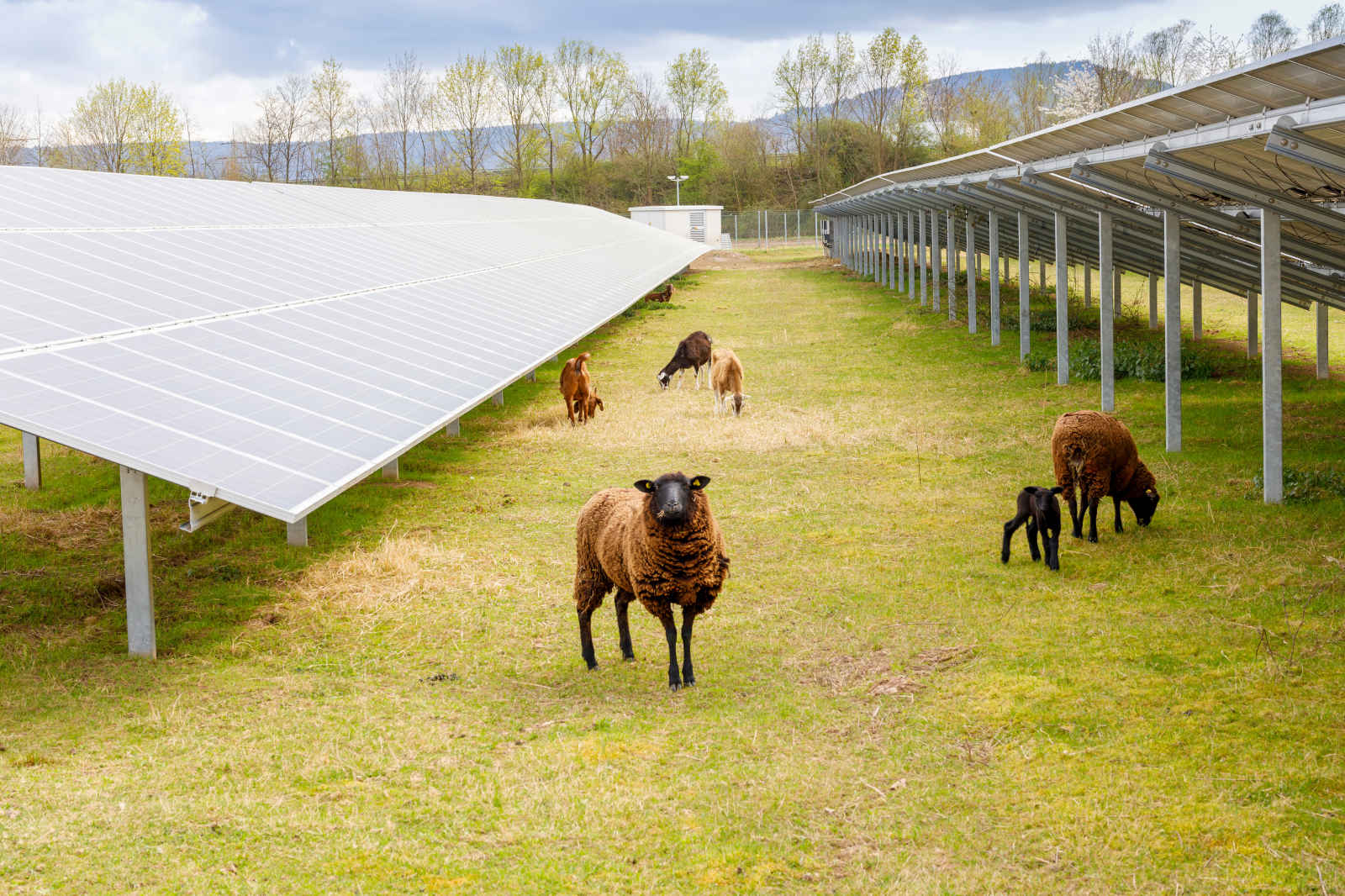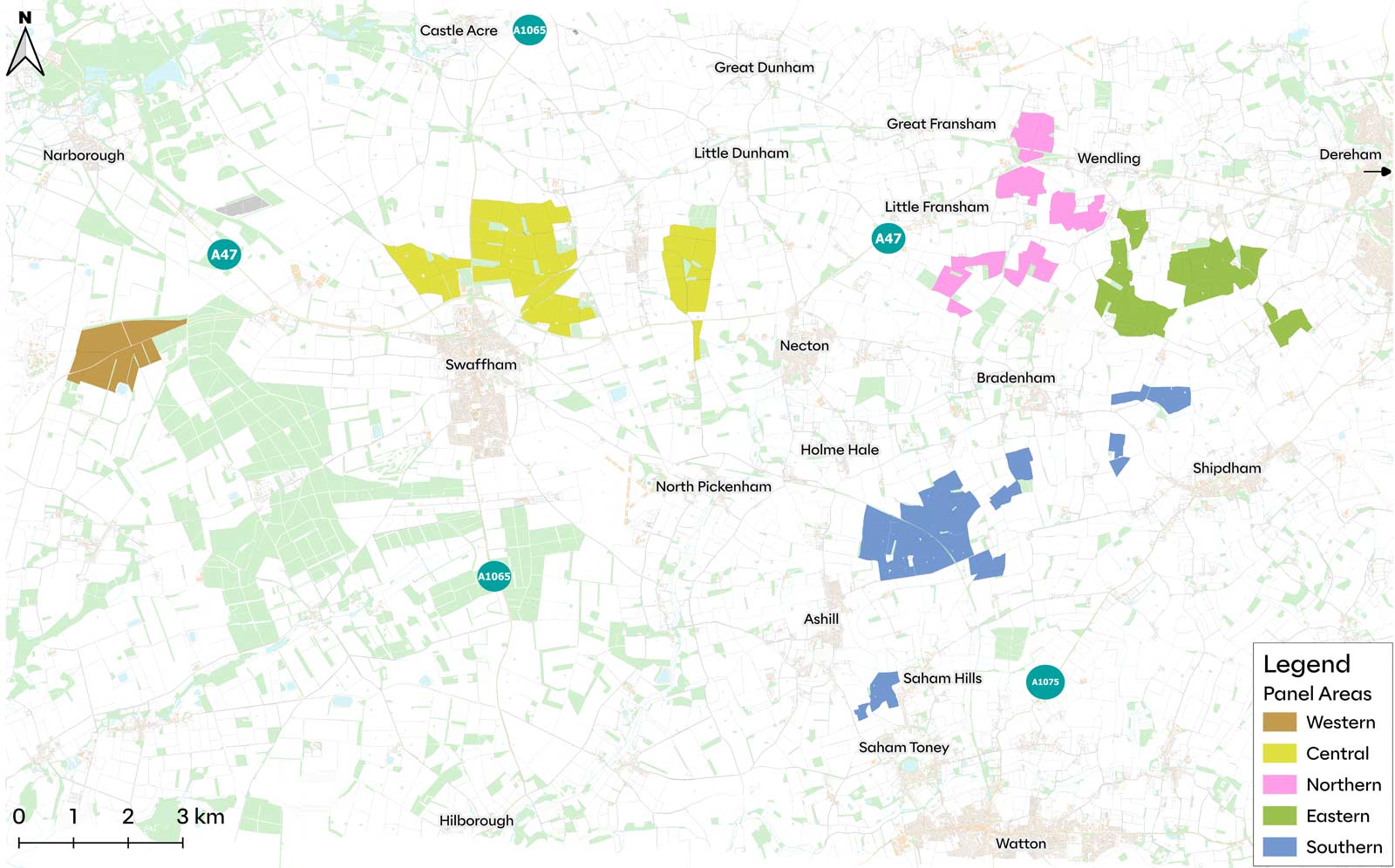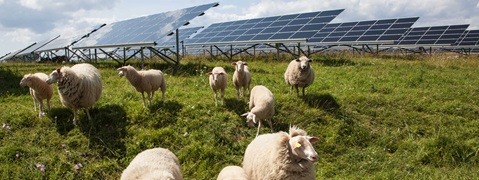Located in Norfolk, approximately 1.5km southwest of Dereham and extending west of Swaffham, the High Grove Solar Farm will provide 720MW of clean energy – enough to power the equivalent of 363,000 typical UK households each year and displacing over 24.8M tonnes of CO2 from equivalent fossil fuel energy.
Project introduction


Facts & figures
of clean energy
powered with electricity
of CO₂ displaced from equivalent fossil fuel energy
Project Update
Since our statutory consultation period held last summer, we’ve been reviewing the feedback received and are grateful to everyone who shared their views. Your feedback is playing an important role in shaping our proposals.
We had most recently anticipated submitting our Development Consent Order (DCO) application in Spring 2026. Since then, NESO have confirmed the outcomes of the national connections reform process for projects across the UK. This process has confirmed that High Grove Solar has Gate 2 Phase 2 status, meaning that the project will be offered a grid connection date sometime between 2031 and 2035. The precise connection date for the project will be confirmed by NESO later this year.
To allow time for us to consider the implications of the Gate 2 Phase 2 outcome for the project’s timeline, submission of our DCO application will now be deferred from Spring 2026. We will share further updates as our updated programme develops and will confirm a revised DCO application date in due course.


The need for solar
Solar power is a vital part of the energy mix helping the UK to meet its net zero targets, while becoming less reliant on expensive fossil fuel imports for electricity and heating.
The UK has a legally binding commitment to achieve net zero carbon emissions by 2050. As one of the cheapest and most rapidly deployable forms of renewable energy, solar will play an important role in achieving this commitment.
The UK Government has set an ambition of reaching 70GW of installed solar capacity by 2035, a five-fold increase in the current installed capacity, and our proposals for High Grove will make a key contribution towards achieving this ambition. Recent announcements by the Government following the general election have reinforced the UK’s commitment to renewable energy, including substantial investments in solar power infrastructure and strengthened policy support for accelerating the deployment of solar technologies.

Our proposals
High Grove is a solar and battery storage project that would provide 720MW of clean energy. The project is distributed across five distinct Proposed Development Areas in Norfolk, with the site extending from about 1.5km southwest of Dereham in the east to the west of Swaffham.
A site location plan indicating each of the Proposed Development Areas is shown on the right. Please refer to the Consultation Brochure or our interactive map for further detail on our initial proposals for each Proposed Development Area, which comprise a combination of electrical infrastructure (such as solar panels) and mitigation/enhancement measures (such as planting and new permissive paths).

Click on the image to zoom
Project benefits

CO2
Contributing 720MW of clean electricity to the national grid, enough to power the equivalent of approximately 363,000 homes, and displacing over 24.8M tonnes of CO2 from equivalent fossil fuel energy - that equates to taking 368,573 cars off the road for a year!

Batteries
Battery Energy Storage Systems (BESS) on-site, ensuring the solar farm can be as flexible as possible in delivering energy to the grid.

Community Benefit Fund
A community benefit fund of up to £11.5 million to support local community groups and initiatives, seeking your ideas on the important causes.

Grazing
Over 95% of the solar panel areas can be used for sheep grazing, maintaining agricultural use and promoting topsoil recovery by increasing organic matter and improving soil structure.

Biodiversity Net Gain
Over 50% Biodiversity Net Gain (BNG) to be delivered on-site, providing new and improved habitats, such as wildflower meadows, grassland areas, bird and bat nesting boxes, and beehives.

Landscape and Ecology
Providing additional opportunities for public recreation, with proposed new footpaths, outdoor picnic areas and benches.

Green Infrastructure
Several kilometres of new native hedgerow and trees including a mix of mature and semi-mature tree planting to further improve visual screening and habitat creation.

Business Rates
Over £48 million generated in business rates over the lifetime of the project, to be used by Breckland Council to fund important local services.
The DCO process
As the project will generate more than 50MW of power, it is classed as a Nationally Significant Infrastructure Project (NSIP) and requires consent via the Development Consent Order (DCO) planning process. The DCO process provides a dedicated framework specifically designed to address the complexities associated with large, complex energy projects (as well as other project types).
The project is currently at the pre-application stage. Applications for DCOs are examined independently by the Planning Inspectorate (PINS). Following an Examination of the project, which typically takes place over a six month period, the Planning Inspectorate will make a recommendation to the Secretary of State for the Department for Energy Security and Net Zero, who will decide whether or not to grant the DCO.
Consultation is an important part of the DCO process as it enables everyone to comment on the proposals. The feedback received, along with further technical work and environmental studies, will inform the development of our proposals ahead of the submission of our DCO application to the Planning Inspectorate.
For further information about the DCO process please refer to our Consultation Brochure.


